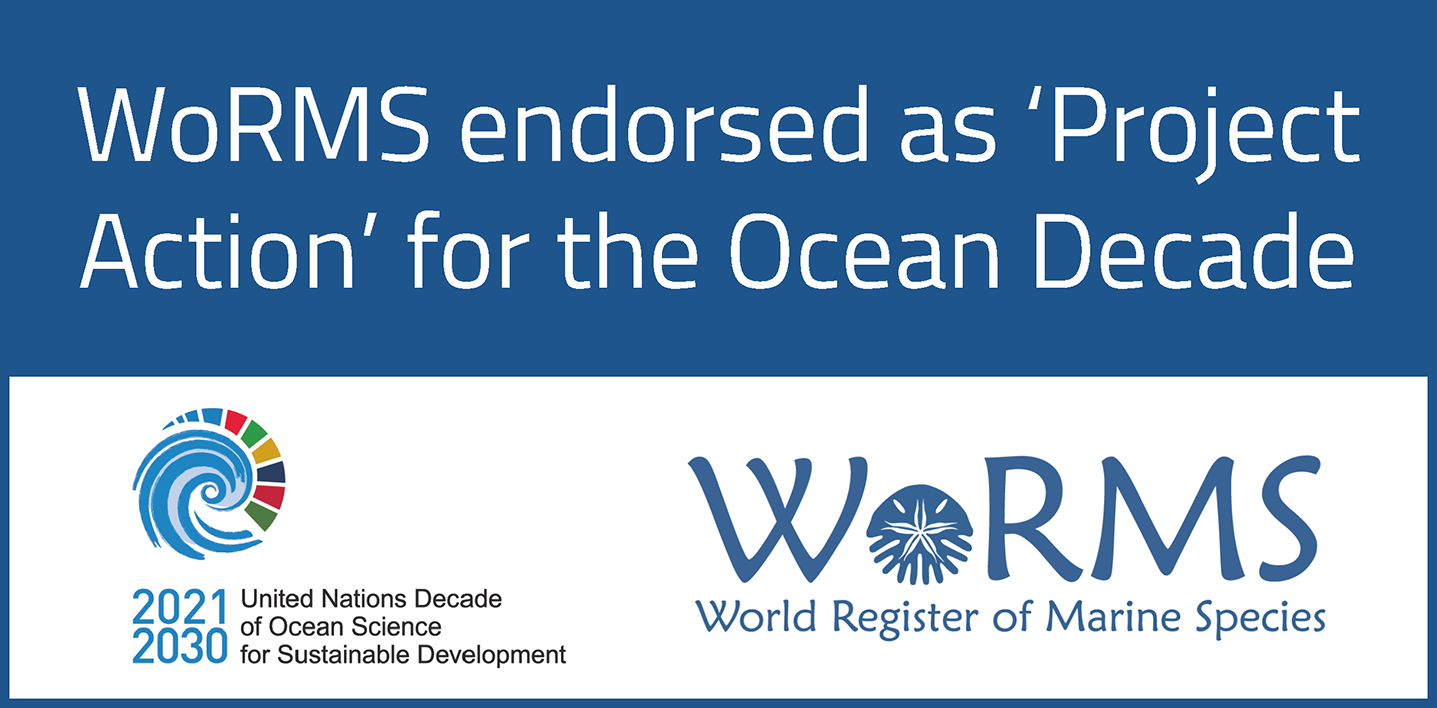
The World Register of Marine Species (WoRMS) aims to provide an authoritative and comprehensive list of names of marine organisms, including information on synonymy. This register, which is hosted by VLIZ, a member of LifeWatch Belgium, has received endorsement by the Ocean Decade as a ‘Project Action’. In early October 2021, the UN Decade of Ocean Science for Sustainable Development (‘Ocean Decade’), endorsed 94 new Decade Actions across all ocean basins, all of them contributing in some way to the central vision of “the science we need for the ocean we want”.
Earlier in 2021, the WoRMS Steering Committee and the WoRMS Data Management Team submitted a proposal under the first Call for Actions, entitled “Above and Beyond – Completing the World Register of Marine Species (ABC WoRMS)”, which has been recently accepted, together with 93 other Actions. These actions all build on the global momentum for ocean knowledge-based solutions ahead of major upcoming global summits on climate and biodiversity. In total, there are now 335 endorsed Decade Actions.
As an Ocean Decade Project, WoRMS is being linked to the earlier endorsed Action Programme Marine Life 2030: A Global Integrated Marine Biodiversity Information Management and Forecasting System for Sustainable Development and Conservation. The Data Management Team has recently initiated conversation with the coordinators of the Marine Life 2030 Programme, to discuss the optimal ways to connect WoRMS to their goals.
During the full span of the Ocean Decade, WoRMS will continue its endeavors to provide a full taxonomic overview of all marine life, not only supporting scientists, but everyone who makes use of species names, including policymakers, industry and the public at large. Although already fairly complete, taxonomic gaps still need to be addressed, in terms of both space and time. New challenges in the field of taxonomy – such as temporary names – need to be explored, thereby looking for the best suitable solution for all WoRMS users. The documentation of species traits which are of critical importance for ecological marine research will be encouraged, as will there be increased efforts to link these with other global databases, infrastructures and initiatives such as the LifeWatch Species Information Backbone, OBIS, GOOS, COL, BoLD & GenBank.
The full article is available on the LifeWatch Belgium website.